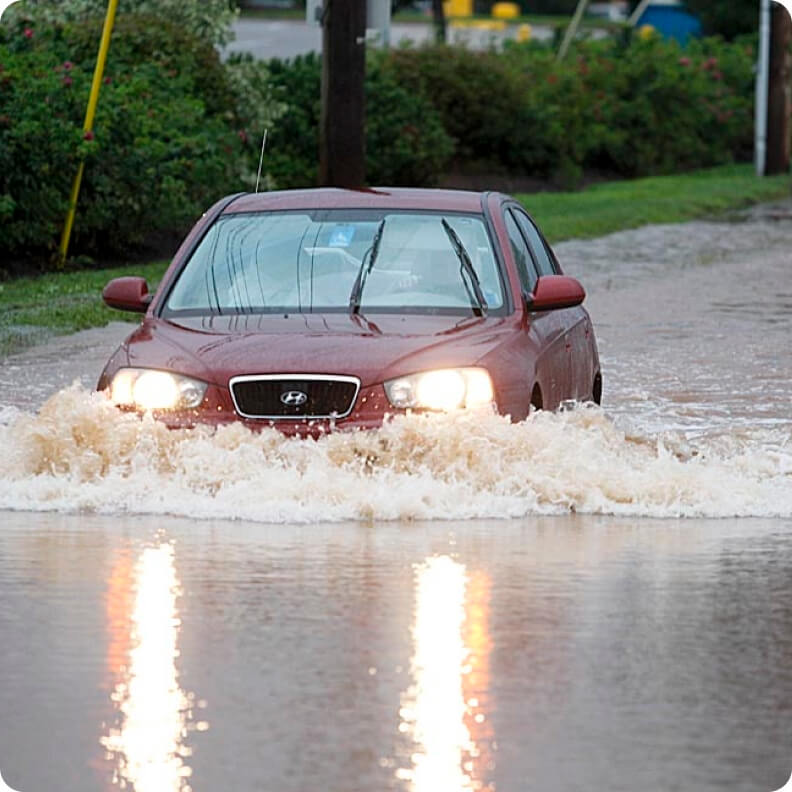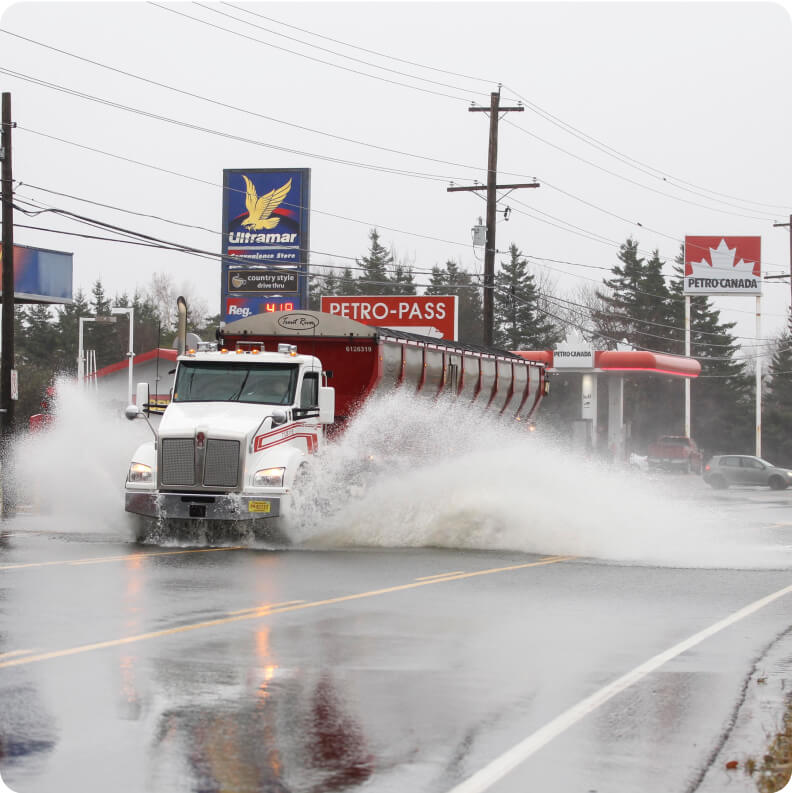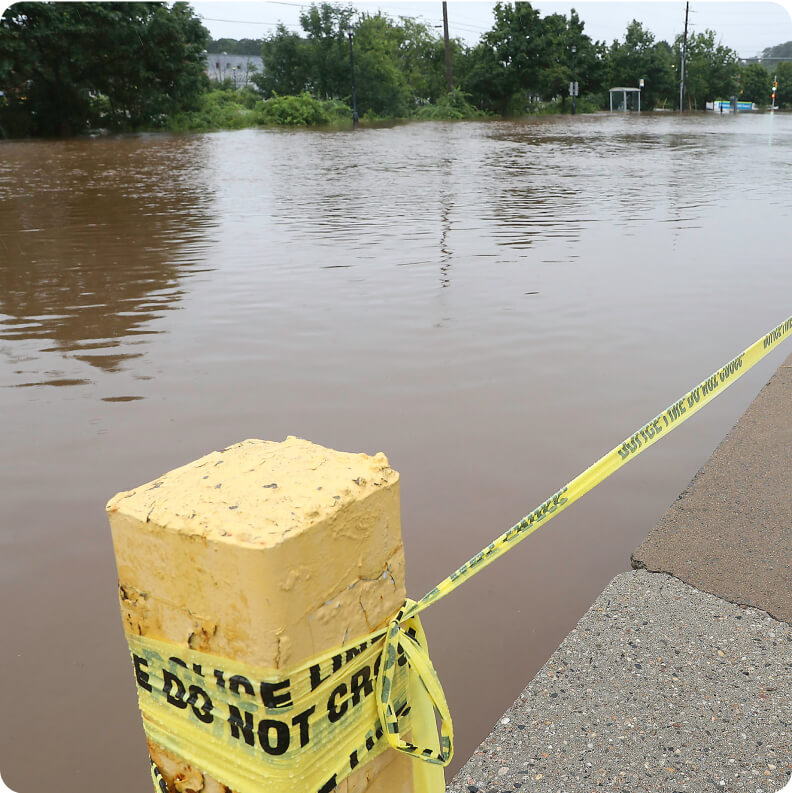Floods
Floods are a leading cause of damage to homes and businesses in Canada. Flash floods can happen anywhere, with little to no warning, so it is important to prepare before a flood occurs and monitor weather conditions carefully.

Preparing before a flood
Before a flood happens:
- Pack a "go" kit with food, medications, clothing, and supplies for your family and pets if you must evacuate
- Plan a meetup location with your family in case you are not together if an evacuation occurs
- Keep copies of important documents in a different location (like work or a family member's house)
- If you live in a home with a basement, seal windows and doors, install a sump pump, and move any valuable items to higher levels of your home
- Check for any leaks during rainy weather and fix them or inform your landlord
- Document or take photos of your property before floods occur for insurance purposes
- Check your insurance coverage before a storm to see what hazards are covered and how you contact them
- Clear rain gutters, downspouts, and storm drains

During a flood:
If you are experiencing heavy rain or other possible flood conditions:
- Monitor weather and news reports and consider downloading a weather app on your phone to receive warnings
- Check 511 Nova Scotia to keep up to date on road conditions
- Be prepared if you must evacuate but you may be asked to stay where you are and avoid travel, so listen or watch for instructions from local emergency management officials and first responders
- Do not attempt to shut off power to your home if there is water present where the switch is located
- Flood waters are very dangerous. They contain debris, contamination, may have strong currents, and may be deeper than you think
- DO NOT enter flood waters, including driving through flooded streets

After a flood:
Be very careful when returning to your home following a flood, and use caution when cleaning up.
- Do not return home until authorities have advised it is safe to do so. There could be structural damages to roads and buildings;
- If power was not turned off, do not re-enter your home until a qualified electricial has determined it is safe to do so;
- Avoid turning on well pumps or appliances until you know it is safe - they pose a risk of shock; Don't use your well water until it has been tested, and the well has been disinfected and re-tested, if necessary;
- Be careful cleaning up after a flood, as waters can contain dangerous contaminants;
- Clean up within 48 hours, if possible, to avoid mould growth;
- Check for signs of mould and dispose of contaminated items that cannot be dried.